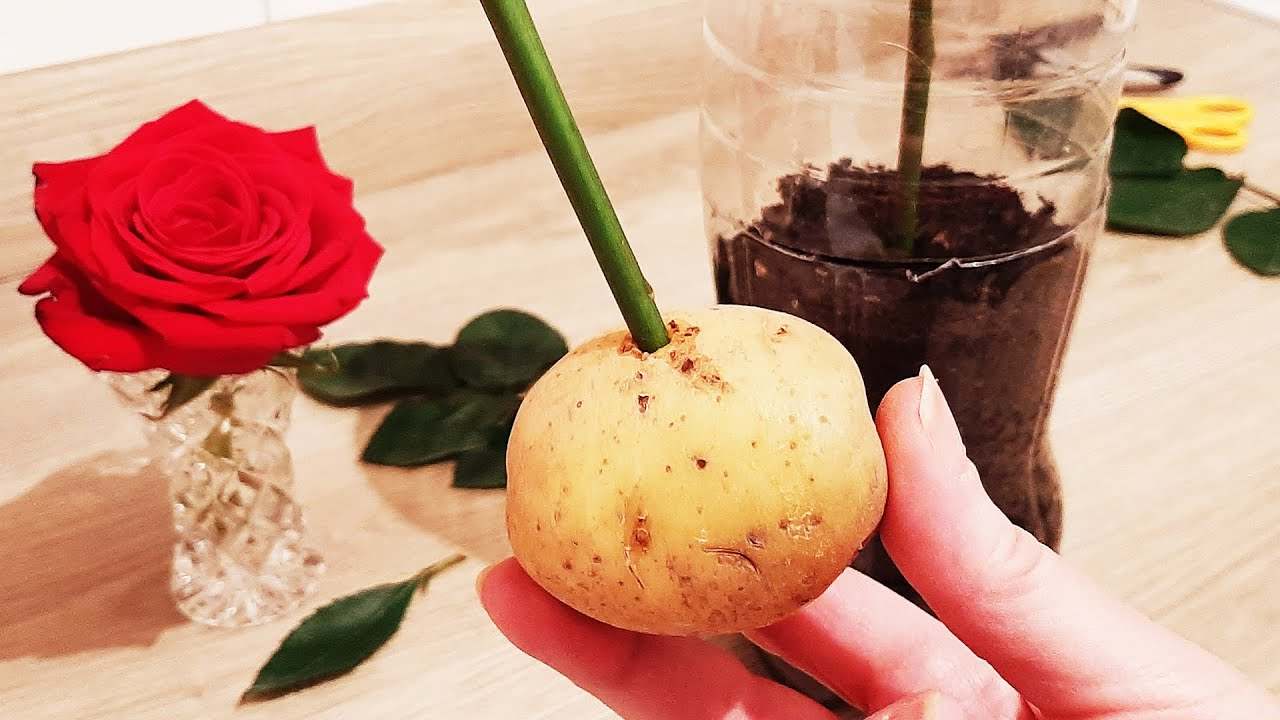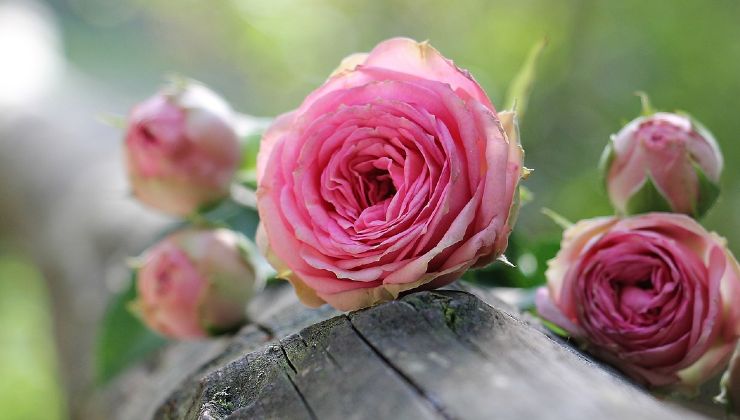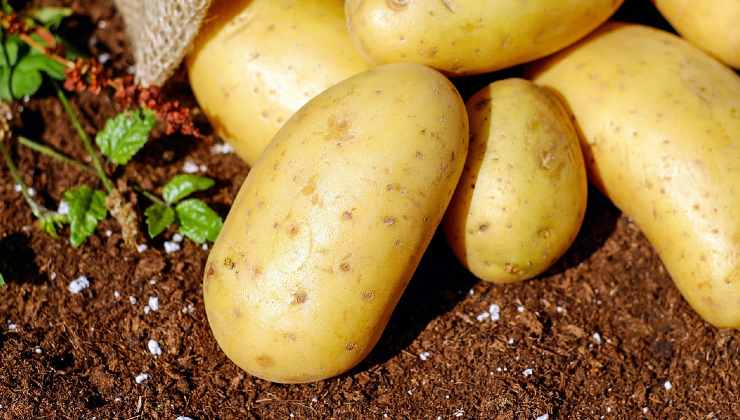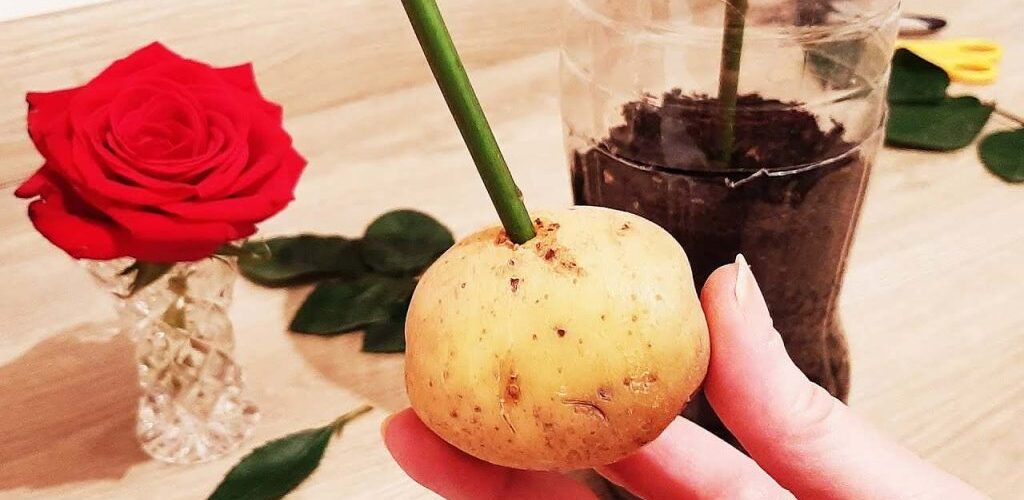Can roses be reproduced with just one potato? With this method you can obtain infinite flowering.

Roses are among the most elegant flowers in the world today, with their scent and their thousand colors. Many wonder if it is possible to reproduce roses thanks to a single potato: experts teach an innovative and fun method, to be tried every day until the roses have finally multiplied .
How to reproduce roses with a potato?
Expert nurserymen teach methods that are easy to implement, even for those who do not have the classic green thumb. The first thing to do to have beautiful roses forever is to cut the cuttings, which will have a length of about 20 cm.

It is important that the plant is mature and has already flowered at least once in the past. The cutting must be cut with shears, using a clean oblique cut. Before using any type of tool it must be sanitized and sterilized with the help of denatured alcohol. The cuttings must be placed in a glass with water until the potatoes are ready to welcome them.
How to make roses bloom with potatoes
There are no differences regarding the variety of potatoes chosen, however it is better to opt for fresh ones that do not have dark parts. The hole must be made in the center of the potato, with a depth of approximately 2cm (help yourself with a pencil).
Take the cutting and dip it in the potato, using some cinnamon which helps in reproduction. Now it’s time to take some large pots and fill them with all-purpose potting soil. Potatoes should be planted in the center of this soil , leaving the cutting part above the ground. It is important to facilitate the growth of the seedling, perhaps with a plastic bag that counteracts the attack of heat and humidity.
If you opt for this method, it will need to be removed once a day to let the seedling breathe.

The work is not finished yet, in fact now is the time to observe the growth of the plant. Usually in two weeks you can notice the roots and their development, thanks to the potato which is an important source of nutrition.
To promote healthy growth , always avoid direct sunlight and prefer a temperature above 20°C.
The soil must always be moist and no water stagnation must form, emptying the saucers frequently (every day). At this point the plant should develop and is ready to be transplanted into the garden or into a pot suitable for its size.
It is important to highlight that not all types of roses can be used for propagation. In fact, some varieties do not develop strong roots and do not give life to new seedlings. For this reason, always ask your trusted nurseryman for advice.



